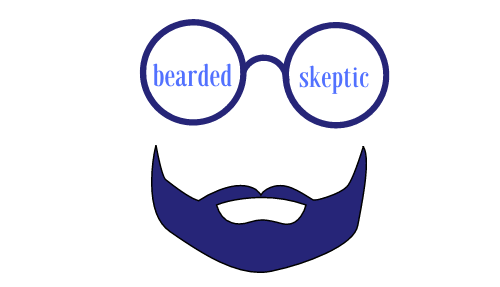Choosing the right platform is what makes all the difference, and Coursera and Udacity stand out as two of the most popular options. But which one truly takes the crown?
So, let’s dive deep into the details and compare Coursera and Udacity side by side.
Learning Approach and Course Content
Coursera is ideal if you’re looking for an experience closer to traditional university learning. It partners with universities and offers structured, institution-level courses that emphasize a theoretical foundation. This makes it a strong choice for in-depth study in areas like computer science. Coursera also offers various course types and programs, including Guided Projects, Specializations, Professional Certificates, and even full online degrees, making it versatile and comprehensive.
Udacity focuses on practical, hands-on skills, often treating learning more as a trade skill. Its courses are designed to help you quickly acquire job-ready tech skills, with a strong emphasis on areas like software development, data science, and artificial intelligence. Udacity’s programs are more streamlined and vocational, with courses that prioritize practical applications over deep theoretical exploration.
Practical vs. Theoretical Learning
If you’re pursuing practical engineering or hands-on tech skills, Udacity may be more beneficial for you, as they emphasize applicable skills that can be immediately used in professional settings. For more theoretical knowledge, Coursera provides a richer base of material and depth, often mirroring university coursework. However, for theory-heavy topics, nothing beats diving into a textbook or consulting library documentation to master both the concepts and practical applications at a fundamental level.
Platform and Course Variety
Coursera offers a broader range of courses, including over 7,000 courses, 600+ Guided Projects, and various learning paths, from Professional Certificates to MasterTrack Certificates and full degree programs. This diversity means you have more flexibility and options to fit different career goals and academic needs.
On the other hand, Udacity maintains a focused catalog of 97 Nanodegree programs and close to 200 free courses, each designed to prepare you for specific roles in technology.
Pricing Comparison
Udacity and Coursera both require a time and financial commitment, but their pricing structures differ:
- Udacity offers a monthly subscription for $249 or an annual subscription for $2988, providing full access to all content.
- Coursera provides several payment options, including individual course payments starting at $39 and subscriptions for specific programs, depending on the course type. The platform’s online degree programs can go up to $9000, reflecting the more extensive scope of some offerings.
Free Courses Availability
For those who love to learn but are wary of financial commitments, both platforms offer free courses. Coursera provides a variety of free courses, allowing learners to explore new subjects without spending a dime. These courses often include high-quality content from renowned institutions, giving learners a taste of what the platform has to offer.
Similarly, Udacity offers free course access, but to unlock full features like mentorship and certification, payment is required. These free courses serve as an introduction to Udacity’s more advanced paid programmes, giving learners a foundation to build upon.
However, it’s important to note that while Coursera’s free courses are accessible, they often lack certification without payment. This means learners can enjoy the content and gain knowledge, but won’t receive official recognition unless they opt for a paid upgrade.
For learners weighing the pros and cons of each platform’s free offerings, consider your goals. If gaining knowledge without certification suffices, Coursera’s free courses can be a great way to explore. But if certification or mentorship is vital, investing in Udacity’s paid programmes might be worthwhile.
User Reviews
User reviews can offer valuable insights into the learning experience on these platforms. Many users applaud Coursera for its diverse course selection and the flexibility it offers in learning. The ability to learn at your own pace, combined with high-quality content, often receives positive feedback. Learners appreciate the academic rigour and the opportunity to earn recognised certificates that can enhance employability.
On the other hand, Udacity receives praise for its hands-on projects and mentorship support. Many learners find the project-based approach engaging and beneficial for applying theoretical knowledge in practical settings. The mentorship and personalised feedback are highlights for users who prefer guided learning experiences.
Coursera’s user interface is often commended for being intuitive and user-friendly. The platform makes it easy for learners to navigate through courses, access materials, and engage with peers. This ease of use enhances the overall learning experience, making it accessible and enjoyable for users of all ages.
Udacity’s career services are another aspect that receives glowing reviews. From resume reviews to job placement assistance, these services are invaluable for tech industry aspirants. The platform’s focus on career readiness equips learners with the necessary tools to succeed in the competitive job market.
Pros and Cons
Every platform has its strengths and weaknesses, and it’s no different for Coursera and Udacity. Coursera’s vast range of courses is its biggest asset, offering learners an extensive selection across various disciplines. However, this abundance of choice can sometimes overwhelm learners who are unsure where to start.
Conversely, while Udacity’s focus on tech is its strong suit, it lacks diversity in subject areas outside of technology. This narrow focus might not appeal to those seeking a broader educational experience.
Coursera’s recognised certificates are a significant advantage for learners looking to boost their employability. These certificates are often seen as a testament to the learner’s dedication and capability, adding value to their resume. However, the platform’s flexible schedule, while convenient, requires self-discipline to complete courses.
Udacity’s project-based learning is a standout feature that offers practical skills, but this comes at a higher cost. The investment is substantial, but for those committed to pursuing tech careers, the returns can be worthwhile. However, the intensity of the programmes can be challenging for some learners, requiring dedication and perseverance.
Final Thoughts
Ultimately, your choice may depend on your career stage and learning objectives: choose Coursera for academic rigor and breadth of topics or Udacity for practical, industry-relevant skills that boost your employability in tech.
